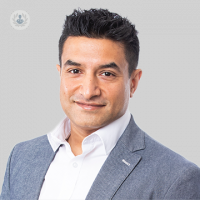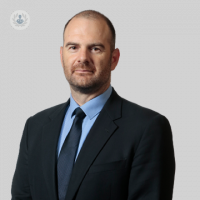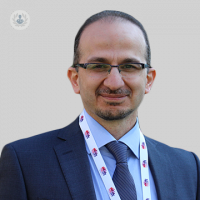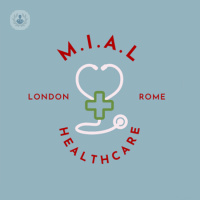What is weight loss?
Weight loss is a decrease in body weight by either following a diet and exercise regime or because of involuntarily circumstances such as illness. Body weight is determined by the amount of energy that is consumed as food and the amount of energy expended during daily activities.
If a person wants to intentionally lose weight, it is recommended that they eat a lower quantity of wholesome and filling foods to create a calorie deficit. This is in comparison to eating excessive volume of unhealthy food groups, which has caused the weight gain.
The amount of calories a person consumes daily to maintain, lose or gain weight varies and depends on the individual’s metabolic rate, height, weight, age, gender and level of activity.
Why do some people need to lose weight?
When a person is overweight, they are more at risk of developing potentially life-threatening illnesses. Excess weight can potentially increase the risk of certain cancers and type 2 diabetes. There is also a higher risk of heart disease, high blood pressure, sleep apnoea, infertility and gallstones. These conditions should be motivating enough for those who are overweight to change their habits and lifestyle. Some people may experience shame, low self-esteem and depression, meaning weight loss can help them to feel better both physically and mentally.
What causes weight gain and obesity?
In cases of obesity, genetics can play a role, especially if a child is born to obese parents. Of course, what is eaten has a huge effect on which genes are expressed and which ones are not.
Processed foods contain refined ingredients, additives and can also be addictive. The manufacturers of these products heavily promote overeating due to marketing low prices and deals, carefully placing products in certain positions in supermarkets, to make unhealthy food seem irresistible. Some of their tactics are unethical, advertising unhealthy foods as healthy.
Many sugary foods are often compared to having the same effects on the brain as drugs, alcohol and nicotine, which causes addiction, overeating and strong cravings for junk food. Foods that are high in sugar can change the hormones and biochemistry of the body when consumed in excess.

How can weight gain be prevented?
Weight gain can be prevented by choosing a healthy lifestyle, which includes improving eating habits and regular physical activity. The goal should be to choose foods that are nutritious and wholesome, such as fruits, vegetables, lean cuts of meat, fish and pulses.
A positive method is to add these foods into the diet and ‘crowd out’ unhealthy processed foods such as refined carbohydrates and foods laden with sugar and to eat little and often throughout the day. Adding exercise to a daily routine means that calories will be burned and likely that weight will be lost.
Consulting with a nutritionist, GP or personal trainer can provide guidance and support. Please consult a GP or physician for guidance if considering following a weight loss plan.
Read more about weight loss and ways to make changes to your lifestyle on the NHS Better Health website.
01-17-2014 07-18-2023Weight loss
Professor Sanjay Purkayastha - Surgery
Created on: 01-17-2014
Updated on: 07-18-2023
Edited by: Karolyn Judge
What is weight loss?
Weight loss is a decrease in body weight by either following a diet and exercise regime or because of involuntarily circumstances such as illness. Body weight is determined by the amount of energy that is consumed as food and the amount of energy expended during daily activities.
If a person wants to intentionally lose weight, it is recommended that they eat a lower quantity of wholesome and filling foods to create a calorie deficit. This is in comparison to eating excessive volume of unhealthy food groups, which has caused the weight gain.
The amount of calories a person consumes daily to maintain, lose or gain weight varies and depends on the individual’s metabolic rate, height, weight, age, gender and level of activity.
Why do some people need to lose weight?
When a person is overweight, they are more at risk of developing potentially life-threatening illnesses. Excess weight can potentially increase the risk of certain cancers and type 2 diabetes. There is also a higher risk of heart disease, high blood pressure, sleep apnoea, infertility and gallstones. These conditions should be motivating enough for those who are overweight to change their habits and lifestyle. Some people may experience shame, low self-esteem and depression, meaning weight loss can help them to feel better both physically and mentally.
What causes weight gain and obesity?
In cases of obesity, genetics can play a role, especially if a child is born to obese parents. Of course, what is eaten has a huge effect on which genes are expressed and which ones are not.
Processed foods contain refined ingredients, additives and can also be addictive. The manufacturers of these products heavily promote overeating due to marketing low prices and deals, carefully placing products in certain positions in supermarkets, to make unhealthy food seem irresistible. Some of their tactics are unethical, advertising unhealthy foods as healthy.
Many sugary foods are often compared to having the same effects on the brain as drugs, alcohol and nicotine, which causes addiction, overeating and strong cravings for junk food. Foods that are high in sugar can change the hormones and biochemistry of the body when consumed in excess.

How can weight gain be prevented?
Weight gain can be prevented by choosing a healthy lifestyle, which includes improving eating habits and regular physical activity. The goal should be to choose foods that are nutritious and wholesome, such as fruits, vegetables, lean cuts of meat, fish and pulses.
A positive method is to add these foods into the diet and ‘crowd out’ unhealthy processed foods such as refined carbohydrates and foods laden with sugar and to eat little and often throughout the day. Adding exercise to a daily routine means that calories will be burned and likely that weight will be lost.
Consulting with a nutritionist, GP or personal trainer can provide guidance and support. Please consult a GP or physician for guidance if considering following a weight loss plan.
Read more about weight loss and ways to make changes to your lifestyle on the NHS Better Health website.


Hair follicle banking: What is it, and is it for me?
By Dr Bessam Farjo
2024-11-21
If you like the idea of your future self thanking your past self for ensuring you have a full head of hair well into older age, you can take advantage of harvesting hair follicles. The Farjo Hair Institute is at the forefront of a ground-breaking cryopreservation treatment for hair loss that uses those banked follicles. Find out more from the clinic's founder, Dr Bessam Farjo. See more


What exactly is Mounjaro, and what does it do?
By Mr Sanjay Agrawal
2024-11-21
Here, Mr Sanjay Agrawal, a highly experienced consultant general surgeon, describes what Mounjaro is, whilst also telling us how exactly it can help people lose weight. See more


5 possible reasons for unexplained weight loss
By Dr Aathavan Loganayagam
2024-11-21
Normally, we are most concerned with weight gain as opposed to worrying about weight loss. But just when does losing weight become too much and what does it mean especially if it's unintentional? We spoke to one of our expert gastroenterologists Dr Aathavan Loganayagam about the possible illnesses that can lead to unexplained weight loss. See more


10 top tips for weight management
By Professor Barbara McGowan
2024-11-21
Losing weight can be difficult, and maintaining weight loss can be an even bigger challenge. Top endocrinologist Professor Barbara McGowan gives her expert advice – here are her ten top tips for weight management See more
Experts in Weight loss
-
Mr Ahmed R. Ahmed
SurgeryExpert in:
- Bariatric surgery
- Hernia
- Gallbladder surgery
- Acid reflux
- Diabetes surgery
- Weight loss
-
Professor Carel Le Roux
PathologyExpert in:
- Obesity
- Pre-diabetes
- Weight loss
- Diabetes
- Diabetes diet
- Metabolic syndrome
-
Mr Ali Alhamdani
SurgeryExpert in:
- Weight loss
- Bariatric surgery
- Gallbladder surgery
- Acid reflux
- Gastric bypass
- Endoscopy
-
Mr Michael Van den Bossche
SurgeryExpert in:
- Obesity surgery
- Hernia
- Cholelithiasis (gallstones)
- Acid reflux
- Weight loss
- Laparoscopy
-
Mr P S Jambulingam
SurgeryExpert in:
- Weight loss
- Hiatal hernia surgery
- Gallstones
- Inguinal hernia
- Gastric cancer surgery
- Oesophageal cancer
- See all

London Bridge Hospital - part of HCA Healthcare
London Bridge Hospital - part of HCA Healthcare
27 Tooley St
No existe teléfono en el centro.
By using the telephone number provided by TOP DOCTORS, you automatically agree to let us use your phone number for statistical and commercial purposes. For further information, read our Privacy Policy
Top Doctors

The Princess Margaret Hospital - part of Circle Health Group
The Princess Margaret Hospital - part of Circle Health Group
Osborne Rd, Windsor SL4 3SJ
No existe teléfono en el centro.
By using the telephone number provided by TOP DOCTORS, you automatically agree to let us use your phone number for statistical and commercial purposes. For further information, read our Privacy Policy
Top Doctors

MIAL Medici Italiani A Londra
MIAL Medici Italiani A Londra
9 Harley Street, London
No existe teléfono en el centro.
By using the telephone number provided by TOP DOCTORS, you automatically agree to let us use your phone number for statistical and commercial purposes. For further information, read our Privacy Policy
Top Doctors
-
London Bridge Hospital - part of HCA Healthcare
27 Tooley St, Central LondonExpert in:
- 24-hour service
- Cardiology
- Minimal access surgery (keyhole surgery)
- Orthopaedic surgery
- Cardiovascular disease
- Gastroenterology
-
The Princess Margaret Hospital - part of Circle Health Group
Osborne Rd, Windsor SL4 3SJ, WindsorExpert in:
- Brachytherapy
- Cardiology
- General Surgery
- Orthopaedic surgery
- Robotic Surgery
- Dermatology
-
MIAL Medici Italiani A Londra
9 Harley Street, London , W1G Marylebone LondonExpert in:
- Cardiology
- Physiotherapy
- Internal medicine
- Neurology
- Otolaryngology
- Radiology
- See all
- Most viewed diseases, medical tests, and treatments
- Hormone therapy
- Migraine
- Paediatric rheumatology
- Autoimmune diseases
- Joint pain
- Child nutrition
- Nutrition
- Weight loss injections
- Endermologie
- Polynucleotides









